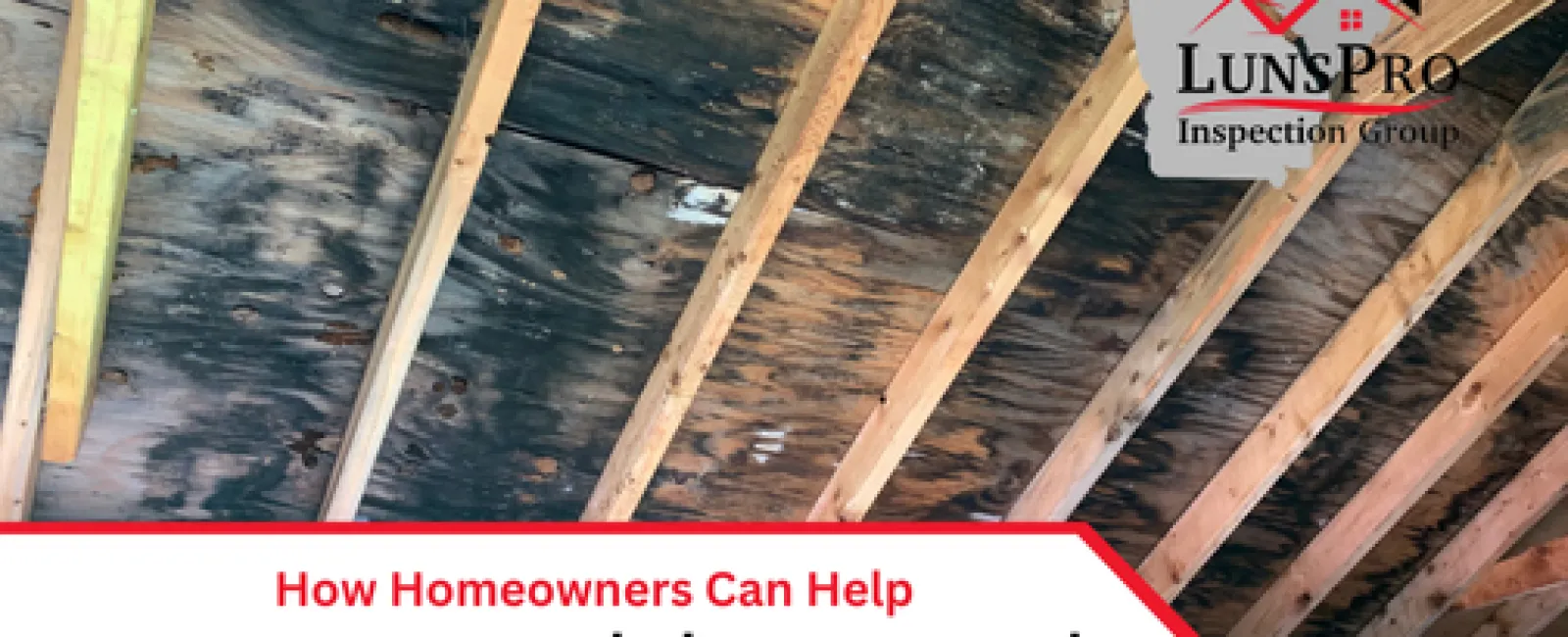Mold growth is a common problem that can affect any home, especially in humid regions like Georgia. Left unchecked, mold can lead to significant health issues and costly damage to your home's structure and interiors. From minor mildew in bathrooms to toxic mold in basements, mold thrives in damp, poorly ventilated spaces. Preventing mold requires vigilance, proper home maintenance, and a clear understanding of the conditions that promote its growth.
LunsPro Inspection Group, an industry leader in Atlanta residential and commercial home inspections, provides valuable expertise to help homeowners identify and address potential mold hazards early on. This guide delves into the causes of Atlanta mold growth, shares actionable prevention tips, and emphasizes the importance of regular home inspections. Armed with this knowledge, homeowners can take proactive steps to keep their homes mold-free and protect the health of everyone living there.
Understanding Mold and Why It's a Problem
Mold is a type of fungus that grows from tiny airborne spores. When these spores settle in moist areas, they reproduce rapidly, forming visible clusters or patches on walls, ceilings, floors, and fabrics. While some mold is harmless, others, like black mold, can produce toxins that pose serious health risks, especially for those with allergies, asthma, or weakened immune systems.
Key Areas Prone to Mold Growth in Homes:
- Bathrooms: High humidity and poor ventilation make bathrooms susceptible to mold.
- Kitchens: Steam and spills create damp surfaces, making kitchens a hotspot.
- Basements and Crawl Spaces: These areas often experience condensation and high humidity, creating an ideal environment for mold.
- Attics: Poor ventilation or roof leaks can lead to mold growth in attics.
In Atlanta, where humidity levels are consistently high, mold growth is a widespread issue. LunsPro Inspection Group often identifies mold risks during Atlanta residential and commercial home inspections, helping homeowners understand how to tackle these problems before they worsen.
Signs of Mold Growth in the Home
Mold often starts out small and invisible, making it easy to overlook. Early detection can prevent the problem from escalating, so homeowners should be aware of the following signs:
- Musty Odors: A persistent musty smell often signals hidden mold.
- Discolored Patches: Dark spots or patches on walls, ceilings, or tiles may indicate mold.
- Warped or Peeling Paint: Moisture behind walls causes paint to warp, peel, or bubble, often a sign of mold underneath.
- Allergic Reactions: Mold can trigger allergies, so if family members experience sneezing, itchy eyes, or respiratory issues at home, mold may be the culprit.
Regularly inspecting high-risk areas like basements, bathrooms, and kitchens helps detect mold early. For a thorough assessment, LunsPro Inspection Group provides Atlanta residential and commercial home inspections that can uncover hard-to-spot mold growth and moisture issues.
Tips for Preventing Mold Growth in Your Home
Preventing mold growth is all about controlling moisture and ensuring proper ventilation. Below are effective strategies for keeping mold at bay in different areas of your home.
1. Control Indoor Humidity Levels
Mold thrives in high humidity, so keeping indoor moisture under control is crucial. The Environmental Protection Agency (EPA) recommends keeping indoor humidity levels between 30-50%.
- Use Dehumidifiers: In humid areas like Atlanta, a dehumidifier is essential, especially in basements and bedrooms where moisture tends to accumulate.
- Monitor Humidity with a Hygrometer: A hygrometer measures indoor humidity levels, alerting homeowners if levels rise too high.
- Ventilate After Activities: Cooking, showering, and drying clothes indoors can increase humidity. Use exhaust fans in bathrooms and kitchens, or open windows to release excess moisture.
2. Ensure Proper Ventilation
Good airflow is essential for reducing moisture, especially in rooms with little natural ventilation.
- Install Exhaust Fans: Exhaust fans in bathrooms, kitchens, and laundry rooms help remove excess humidity.
- Keep Air Vents Clean: Dust and debris can obstruct air vents, reducing airflow and causing dampness in enclosed spaces.
- Open Windows: Whenever possible, let fresh air circulate by opening windows. This reduces stagnant air, a common cause of mold growth.
3. Fix Leaks Promptly
Leaking pipes, roofs, and windows create a steady source of moisture for mold. Inspect your home regularly and address leaks immediately.
- Inspect Pipes and Faucets: Even minor leaks under sinks or in utility areas can lead to mold over time. Regularly check for leaks and fix them as soon as possible.
- Roof Maintenance: Atlanta's weather can wear down roofs over time, leading to leaks. Regularly inspect the roof for damage, and repair or replace damaged shingles promptly.
- Seal Windows and Doors: Damaged seals can allow water to seep into walls and window frames. Re-seal any worn or cracked areas to prevent moisture intrusion.
4. Use Mold-Resistant Products
When renovating or remodeling, opt for mold-resistant products to prevent growth in high-risk areas like bathrooms and basements.
- Mold-Resistant Drywall: Ideal for bathrooms and kitchens, this type of drywall resists moisture better than regular drywall.
- Mold-Inhibiting Paint: Paint with mold inhibitors can help prevent mold on walls and ceilings in humid areas.
- Moisture-Resistant Insulation: Insulation materials that resist moisture reduce the likelihood of mold growth in walls and attics.
5. Regularly Clean and Disinfect
Regular cleaning, especially in high-moisture areas, can prevent mold from taking hold.
- Bathrooms and Kitchens: Clean grout and tiles with a mold-killing cleaner. Wipe down counters and surfaces that might collect moisture.
- Air Conditioners: Air conditioners can collect moisture and dust, creating mold-prone areas. Clean or replace air filters regularly.
- Carpets and Upholstery: Avoid carpeting in damp areas like basements. Regularly clean and vacuum upholstery to reduce moisture buildup and prevent mold.
6. Improve Drainage Around the Home
Poor drainage around a home's foundation can lead to basement moisture and mold issues.
- Grade the Yard Properly: Ensure that the ground slopes away from your house to prevent water from pooling around the foundation.
- Clean Gutters and Downspouts: Clogged gutters can cause water to overflow, seeping into the foundation or siding. Clean them regularly and make sure downspouts direct water away from the house.
Proper drainage not only prevents mold but also helps maintain your foundation and overall home structure. During Atlanta residential and commercial home inspections, LunsPro Inspection Group often advises on drainage improvements as a mold prevention measure.
The Importance of Professional Inspections for Mold Prevention
Regular inspections are a critical part of mold prevention, particularly for hidden areas like crawl spaces, attics, and behind walls. Professional inspectors like those at LunsPro Inspection Group have the expertise and equipment to detect early signs of moisture and mold that homeowners might miss.
LunsPro Inspection Group offers comprehensive Atlanta residential and commercial home inspections, assessing not only for mold but also for the moisture sources that encourage it. By addressing underlying causes, homeowners can prevent mold from returning and ensure a healthier living environment. Inspections are particularly important before buying or selling a property, as undetected mold can lead to disputes and affect a home's market value.
Preventing mold growth requires proactive steps and a commitment to regular maintenance, especially in humid climates like Atlanta. From controlling humidity and fixing leaks to using mold-resistant materials, homeowners can create an environment that discourages mold growth and protects the health of everyone in the household.
LunsPro Inspection Group's expertise in Atlanta residential and commercial home inspections provides homeowners with peace of mind and a clear action plan for maintaining a mold-free home. By combining regular inspections with preventive measures, you can tackle mold issues before they start and keep your home safe, healthy, and comfortable.
Whether you're a new homeowner or simply looking to improve your home's resilience to mold, taking these preventive steps will help you manage moisture effectively and avoid the headaches that come with mold growth.

